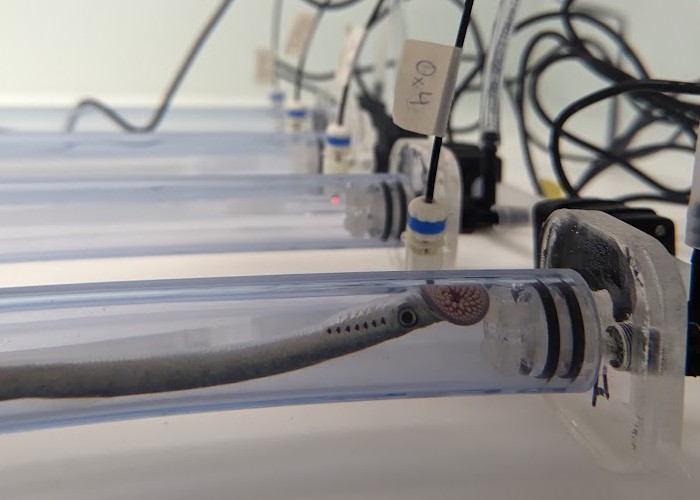Hi, I'm Hugo.
Ecophysiologist
I'm a Portuguese scientist currently living in Canada. These days, I am studying the movement and physiology of aquatic animals! My main areas of interest are ecology, fish biology, and physiology.
Contact MeAbout me
My introductionMy academic career started in Portugal, with a bachelor in biology and a masters in ecology. During both, I explored the ecology of rivers, and learned how to determine their ecological health by understanding the animal communities that live in them.
From there, I flew to Denmark for an EU funded project on hard-bottom reefs. It was also there that I eventually did my PhD, using radio and acoustic telemetry to track Atlantic salmon migrations.
These days, I am in Halifax (Canada), using and acoustic telemetry and aquatic respirometry to study the movements of aquatic animals and the impacts we may impose on them when we tag them. I am a big fan of open source software, and over the years I have learned a lot about using R, arduino, and other tools to help me develop cool experiments.
Qualifications
My journey so farPhD in Fish Ecology
Technical University of DenmarkMasters in Ecology, Environment and Territory
University of PortoBachelor in Biology
University of PortoProfessional course in Environmental Management
Professional School Conde S. Bento, PortugalPost-doctoral fellow/Adjunct Faculty
Dalhousie University, CanadaPost-doctoral fellow
Wilfrid Laurier University, CanadaPhD candidate
Technical University of DenmarkStudent assistant
Short term researcher
Technical University of DenmarkStudent assistant
Faculty of Sciences, University of Porto, PortugalInterests
My scientific focusEcology
The interactions between living thingsThis is my foundational interest, having driven most of my studies and research. I am fascinated by the interactions between living beings, as well as their relationships with the abiotic environment that surrounds them. These interactions inform us about the health of the ecosystem, and therefore help us understand and repair any damage we might have done.
Animal telemetry
Unveiling movements and patternsI first entered the world of animal telemetry when I moved to Denmark. So far, I've tried acoustic, radio, and PIT telemetry. Tracking animals in the wild gives us an incredible window into their life stories, revealing hidden worlds where we least expect them. This information can feed into our management plans, allowing us to plan a future that is sustainable and respectable for all living beings.
Aquatic respirometry
Underwater oxygen consumptionThis is a fascinating topic, both from a physiological and technical point of view. I've spent a fair amount of time designing equipment to help me reliably measure and remotely monitor the oxygen consumption of fish using intermittent flow respirometry. Oxygen consumption is a proxy for metabolic rate. When we measure it under different circumstances, we can learn how well an animal copes in different environments.
Thermal physiology
Responses to temperature changesTemperature plays a crucial role in the reactions that happen inside living organisms. Some organisms, like us, tightly regulate their body temperature to ensure stable conditions. Others allow their internal temperature to fluctuate as the environment does. Throughout the living world, beings have developed a wide range of solutions applied in nature to either resist changes in temperature, or try and maintain normal functioning in the presence of such changes. Understanding them is fascinating, and particularly important under the current climatic circumstances.
Skills
Things I've learned along the wayCourse
teaching
R stats
programming
Equipment
assembly
Aquatic animal
husbandry
Experimental
design
Team
leadership
Portfolio
Most recent workHow to reach me
e-mail: hflavio@dal.ca
BlueSky: @hugoflavio.com
Mastodon: HugoMFlavio@ecoevo.social
GitHub: hugomflavio


